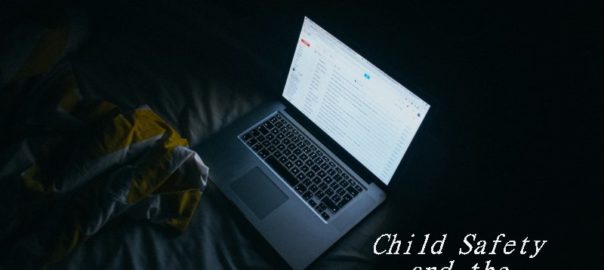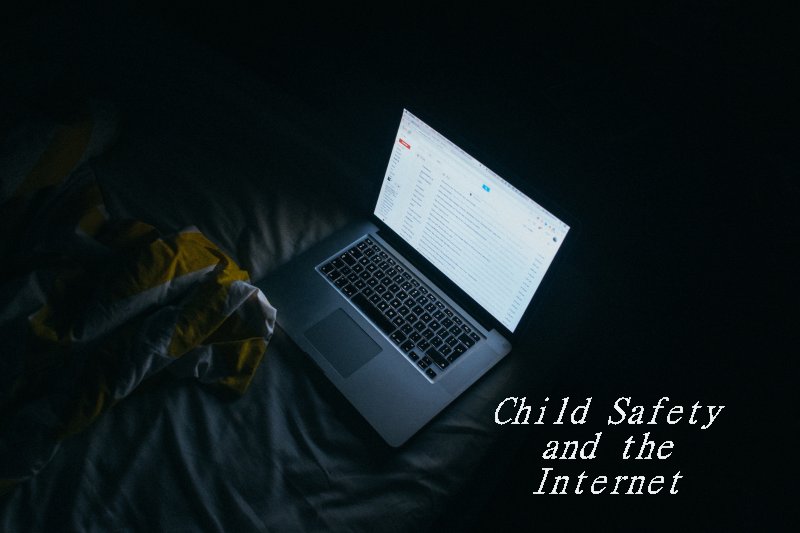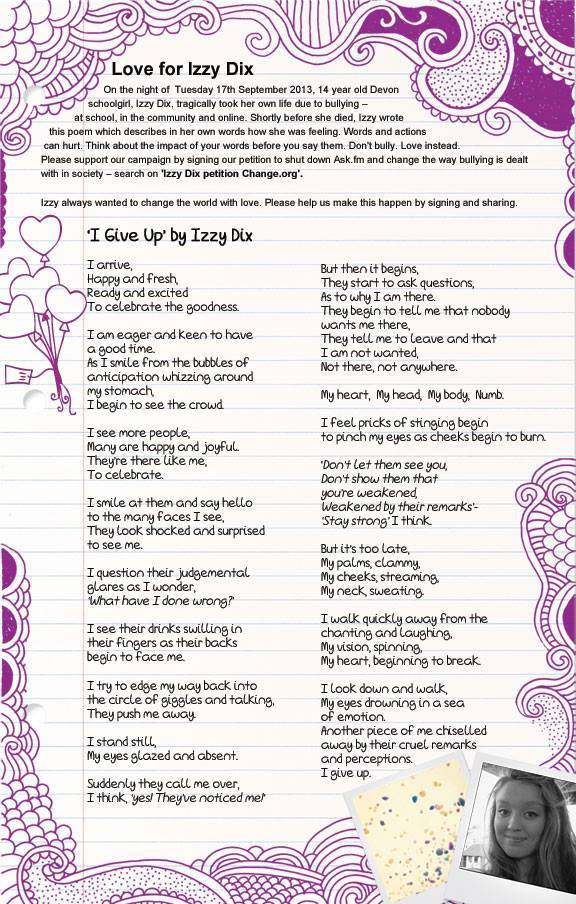There’s no denying it that the internet is a big part of children’s lives; with new kinds of lessons about child safety – for both them and us parents to learn about. My husband and I learnt the hard way that we had to be savvier about what goes on online when we potentially could have lost our children due to some issues with child safety and the internet. Here I will cover things that every parent should think about when it comes to children’s internet safety and some things that are happening that we may need to be aware of.
Devices
There are so many devices that children can access the internet on now – not just Personal Computers, but each one has roughly the same issues for child safety. There are laptops (which are obviously portable), games consoles (including portable ones), tablets, iPods, Skype, WhatsApp and there’s probably a lot more I haven’t remembered. PLUS there’s the fact that even if your child does not have access to one of these then once they leave the home then someone else can show them on theirs.
Plus it seems that children are having mobile phones younger and younger. For me internet safety falls into two categories – the first being the obvious we need to stop our young children accidentally coming across content (whether that be visually or people) that is not safe or suitable for them; and the second is those who are going looking for that content – out of either curiosity growing-up and/or peer pressure.
Some problems with Child Safety and the Internet
Spending
Let’s start with the lesser of the evils and that is spending. Be careful of in-app purchases and advertising around what they are using online – we ensure everything requires a password and that you need to keep re-entering the password rather than it still working when you give the child back the device. Obviously also ensure that the content is age-appropriate for the child before you download it too.
Children keeping themselves safe
These are probably the problems that we are most familiar with – knowing that children must be aware that not everyone online is who they say they are. Make sure your child knows basic rules such as not to tell everyone everything about themselves – not a photo in your school clothes with the logo, your address, telephone number, password or even your age and name. Using nicknames to connect with friends is a good idea – and once they start wanting to play on “servers” – but try to ensure that these are moderated. Don’t accept things from people you do not know – including messages, e-mails and texts.
Make sure any social media accounts are private, not public, and that they only connect with people they know. Plus regularly check the security settings. Ensure that they are in the living room with their devices and make sure you can hear what is going on – I would think twice about headsets until you are absolutely sure that they would be safe (we are still saying no to our thirteen year old).
The same can be said of webcams and if they have access to “Facetime”. If they do decide to meet up with someone make sure other people know where they are going (with permission of their parents) and meet in a public place.
Bullying
Some of the things that children are experiencing today are much the same as we did when we are growing up – bullying and peer pressure, wanting to be “grown-up” etc but now they are magnified with the use of the internet. I am sure we have all seen the videos on social media of the children being beaten up whilst someone else is just standing their filming it on their phones. Other bullying can be a lot more subtle – little comments, exclusion – including not giving “likes” and even nasty or inappropriate private messages
I think it is important to be aware of the platforms that have these private messages as you may only be monitoring your child’s account by having them as a “friend.” Top ones that spring to mind for me are: Facebook Messenger, Snapchat, Instagram, Twitter and any games which have a chat facility. I find that on YouTube people can be just nasty publically. I guess it is so much easier to be an anonymous behind a keyboard.
Also be aware that your child is capable of making a new account where they know you know nothing about it. I am not sure which is worse – having a child who is bullied or IS the bully?! Either way try to keep a close-eye on their activity and devices. Take an interest in what they are doing online – what are they playing, and join in. Let them know that they can come to you if they feel that they are someone else is experiencing something unpleasant.
Inappropriate content
So one minute your child is watching a video on YouTube – a Minecraft Video, or Peppa Pig – and the next thing they are watching a totally inappropriate Peppa Pig video that someone has made. It has come on because YouTube thinks it is of a similar nature and lets it autoplay. In situation one you can avoid this by getting your children to use YouTube Kids and parental controls.
However children are very technically minded and can easily change the settings (for example to say that they are over eighteen years old) in order to search for this content. Some people would argue that this natural curiosity is no different to sneaking an adult magazine into their bedroom when they were younger – but that it is a lot more accessible.
Unfortunately, I am afraid that there is a lot more seriousness than this with videos being available to children of a very abusive nature and not what they are ready to cope with; never mind any cyber grooming they put themselves at risk of. I believe Google search and YouTube to be known to have the worst most easily accessible inappropriate content to children.
Of course online grooming is very real such as the case of murdered teenager Kayleigh Haywood.
Sexting and Sending Naked Images
Other things that are happening at the moment are sexting and sending naked images. Children are accessing porn as young as 7 years old. This could be due to hearing things at school and from other kids – who may have older siblings.
I think the most important thing here is to talk open and frankly with your child about these issues. Don’t make them feel ashamed. Let them know that they are loved and it is dangerous/unsafe. Remember what it was like to want to be older than you are and wanting to fit in. Tell them that their curiosity and urges are normal (even if you wish they were not). Do things to ensure that their self-esteem is raised and not damaged from the experience.
Extreme Measures for keeping children Safe Online
Sometimes as parents we need to take extreme measures – as maybe the case if your child has ended up with an addiction. Our devices are now controlled by our HomeHalo (which only allows the internet at certain times, controls each device for where it can and can’t access and at what times). It only stops them getting on so if they’ve left it on it will not kick them off.
There is also one called Guardian Web), plus we completely turn the router off at night;. There are administrator accounts on things were possible and each one needs a password entering before anyone can use it – which only us parents know. Plus there are then parental controls – which are also on the television (we even had to stop children’s channels being accessible in the middle of the night); the history is monitored and small handheld devices are locked away at night-time (we bought a safe especially for this). We haven’t but you can install an app such as SMS Backup+ which e-mails a copy of every SMS, MMS and WhatsApp message that is sent or received on a phone, as well as logging every incoming and outgoing phone call. Plus you can set e-mail accounts to auto-forward copies of every e-mail sent or received from your child’s address.
Resources of help for keeping Children Safe Online
- Books are a great source of help especially the ones that help children understand what is happening to them as they grow up.
- The NSPCC – they have a great range of resources for these topics for different ages. I like the one called I saw your willy – that demonstrates that even if you post something for a few seconds and delete it – it is too late and potentially the whole world can see it.
- For parents there is the Youngminds Parents’ Helpline which offeres free confidental online and telephone support, information and advice to any adult worried about the emotional problems, behaviour or mental health of a child or young person up to the age of twenty-five years old. It is a free call – 0808 8025544.
- Thinkuknow, is a website set up by the Child Exploitation and Online Protection Centre, and offers advice and guidance for both children and parents.
- Read about the Xbox One Parental Controls
Of course with our special needs children there is even more of a risk of their vulnerability – and they may not understand what is appropriate and what isn’t. This is, unfortunately, how we came to discover that our son is also most likely on the Autistic Spectrum. Luckily it did not go unnoticed and he was safe – but not without a lot of hard work on his part and a lot of emotional distress.


